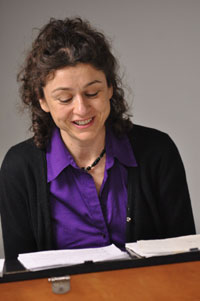
Phil Farnsworth
Alum
Jane Potter
Position
Professor
Affiliated Departments
Telephone
617-747-8596
Personal Websites
For media inquiries, please contact Media Relations
Career Highlights
- Pianist
- Leader, Jane Potter Trio
- Member of the Kamal Scott Group, New York and Boston
- Solo appearances at the Prudential Center, the Brookline Music School Gala Event, corporate functions, and on National Public Radio
- Performances with the Aaron Copeland Symposium
- Recordings include Ask Your Mama: Twelve Moods for Jazz, a poem by Langston Hughes
- Resident pianist and music professor at Northeastern University
- Member, board of directors, Brookline Music School
- Performed for eight years at the Oak Bar in Boston's Copley Plaza Hotel
- Performed in Italy for vocal jazz clinics with Kris Adams
- Regularly performs at Eddie V's in the Prudential Center and in Burlington, MA
Awards
- Recipient of Distinguished Faculty Award for the Performance Division at Berklee College of Music, 2014
Education
-
School NameBerklee College of MusicState or ProvinceMassachusettsDegreeBachelor of Music (BM)Field of StudyMusicDate Degree Received
In Their Own Words
